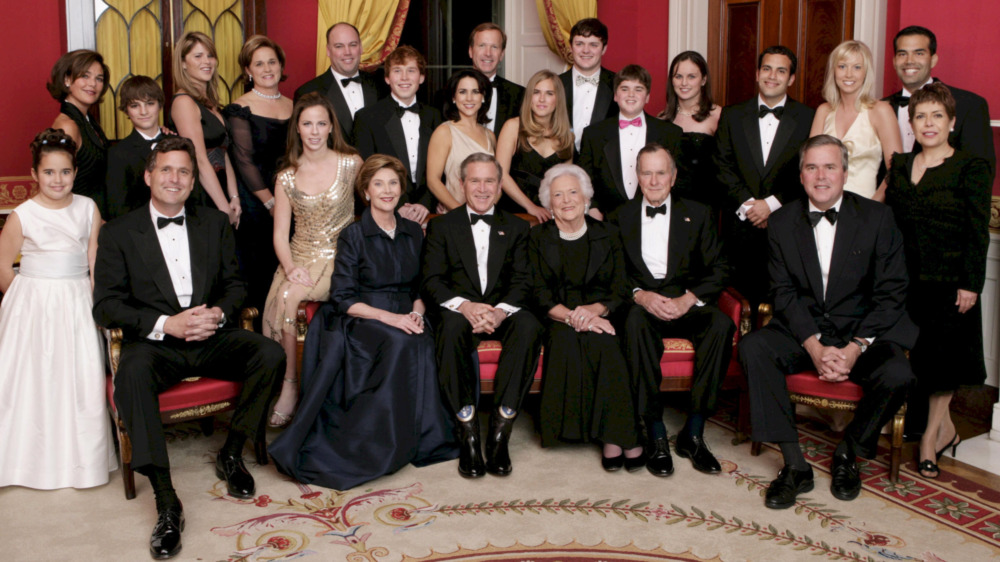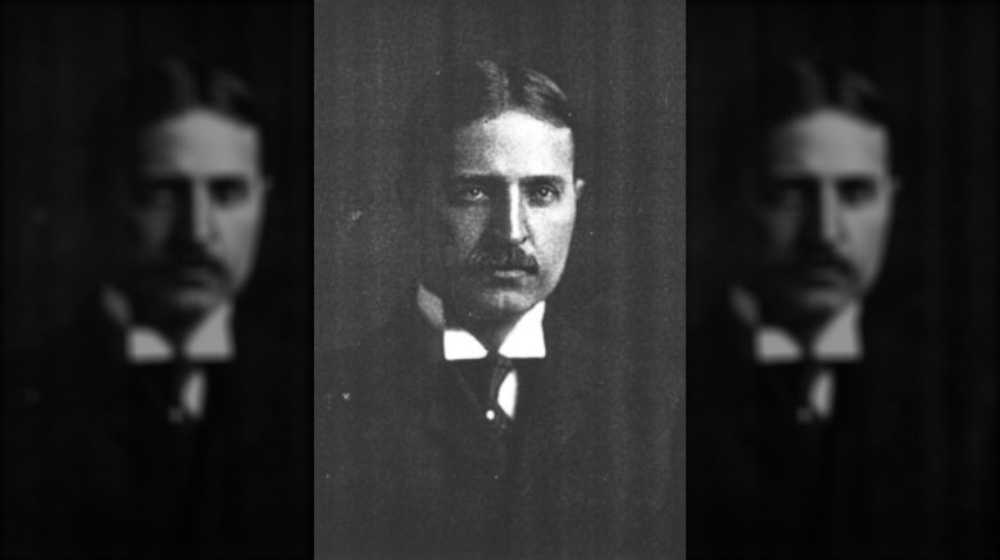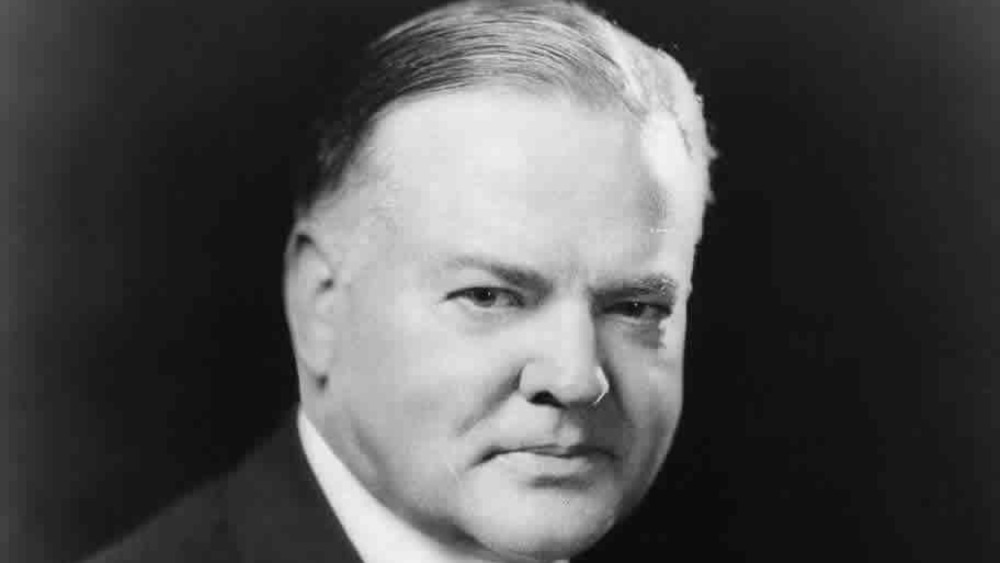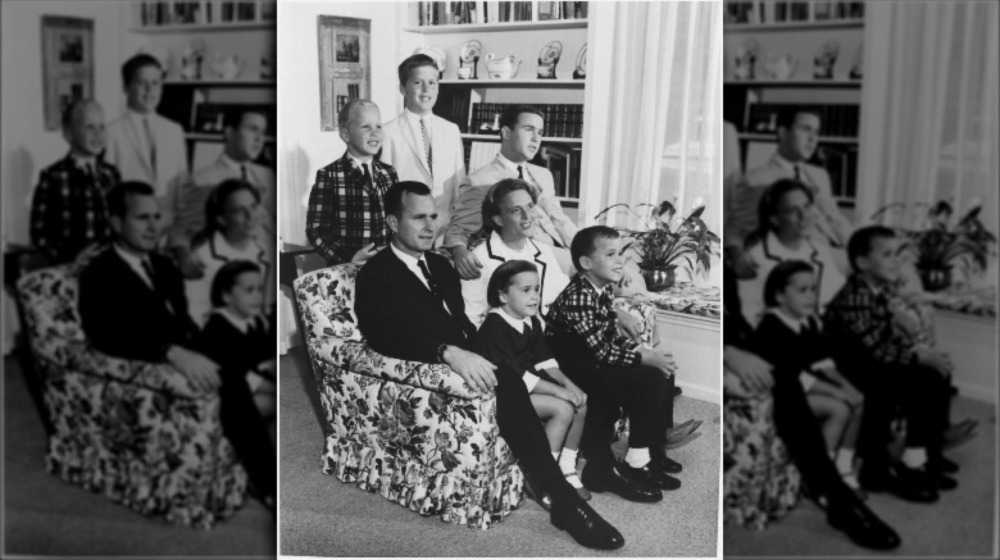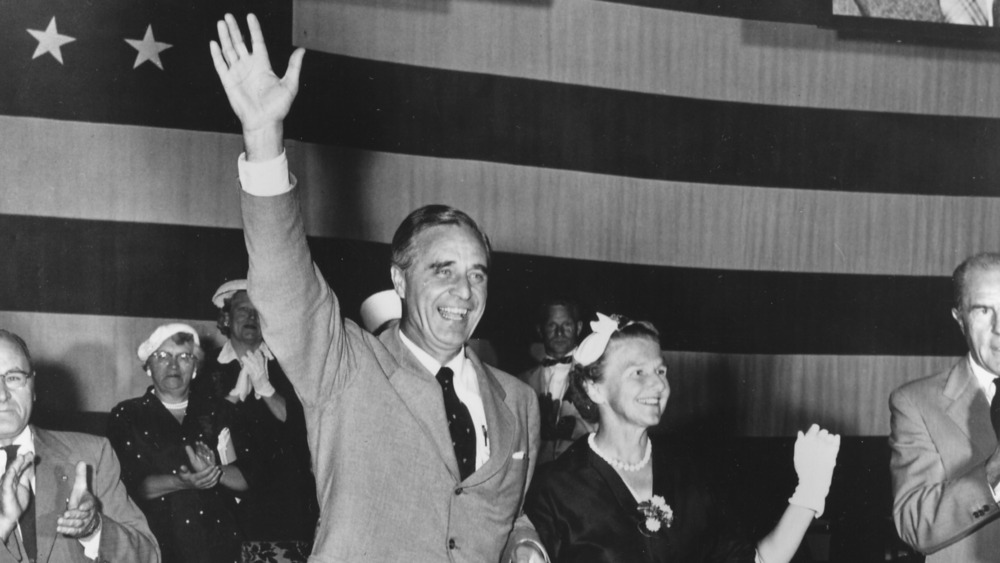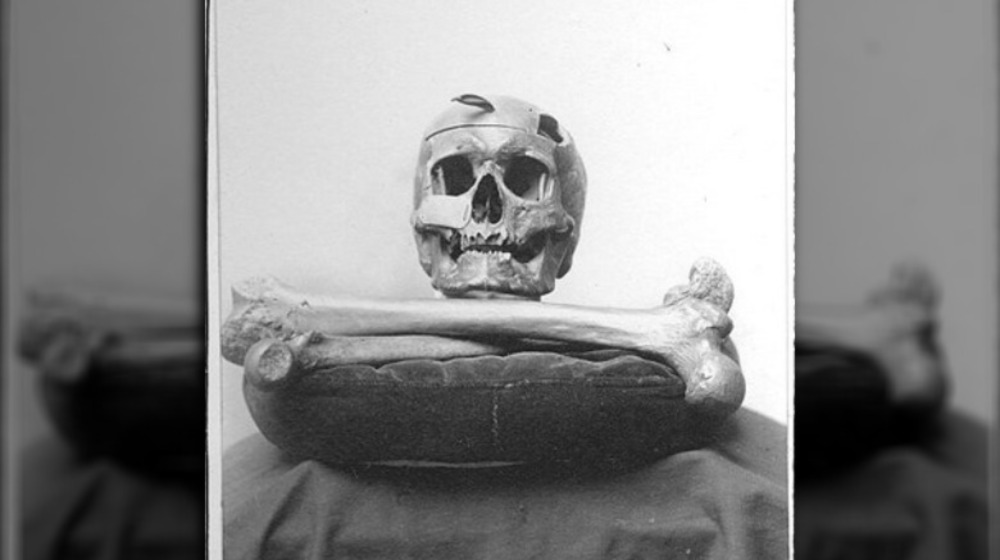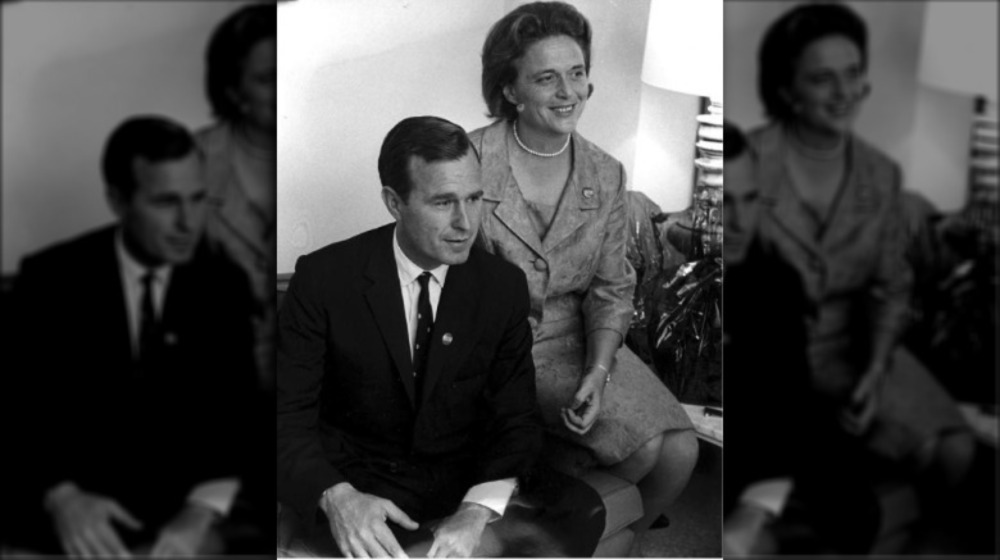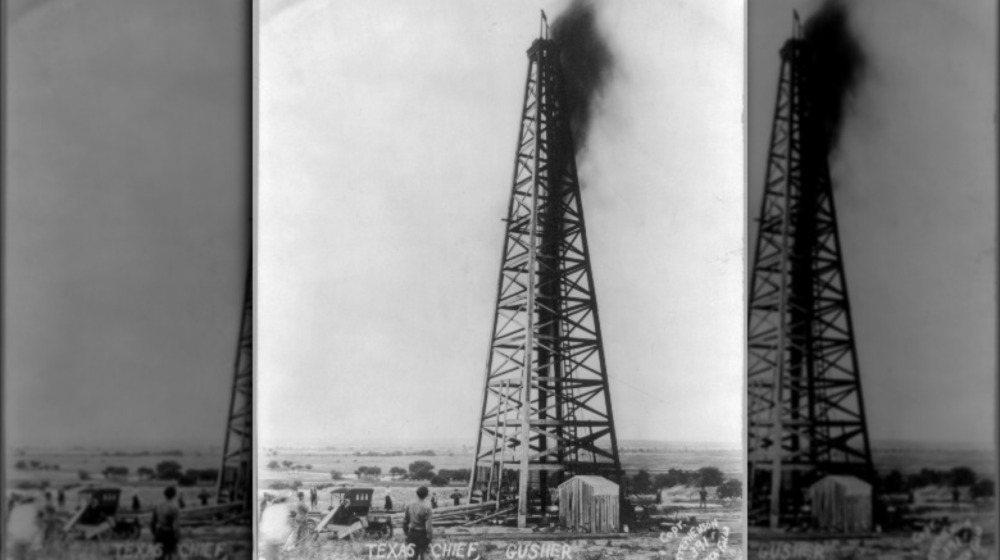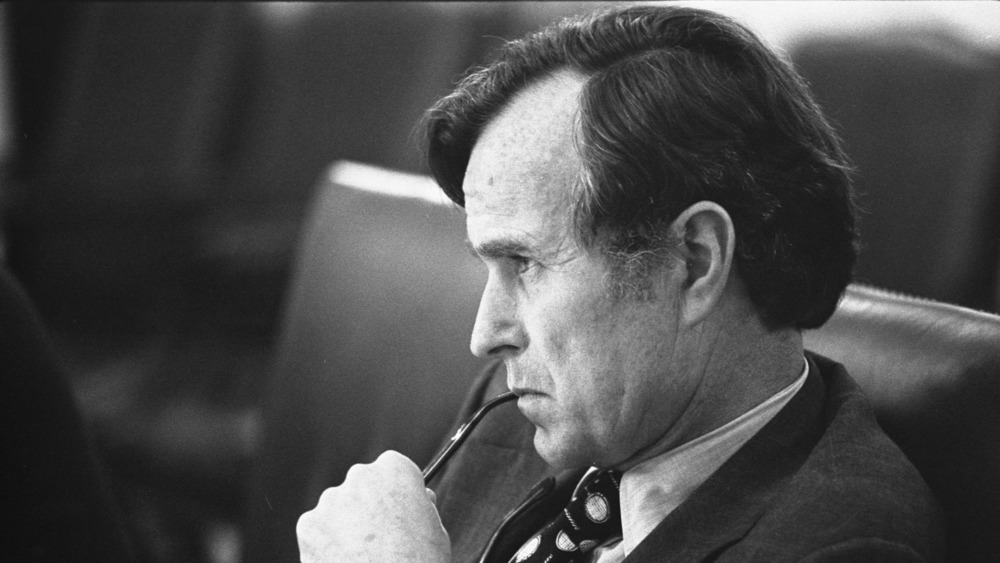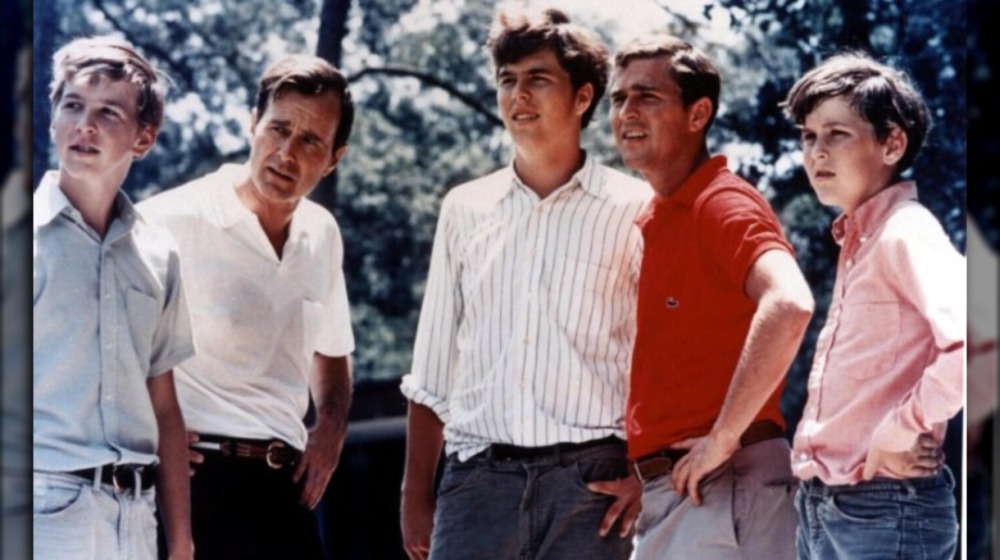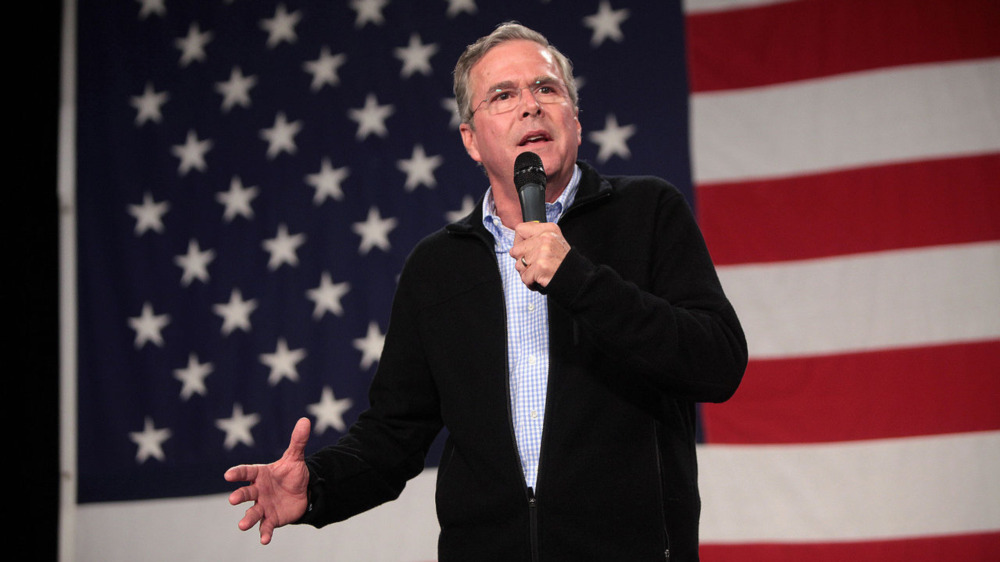How The Bush Family Really Got So Rich
It's often understood that succeeding in United States politics requires quite a lot of money and power. Those two forces are very frequently intertwined, with one helping the other, garnering important political donors or using business partnerships to gain important friends and keep one's political star on the rise.
Few modern political dynasties understand this more than the Bushes. Though, as Town & Country quotes, the family would have you believe that their collective fortunes have been made solely through smart management and hard work. Soft power, of the sort that often brings about change through making friends and wielding influence, is also a significant part of the equation.
For later generations, the mere fact of their family name also appears to have gotten them into some pretty key positions, from the Skull and Bones secret society at Yale, to other Ivy League institutions, to lucrative jobs, to some canny financial circles. The story of the family money is, ultimately, a pretty complicated financial web, but one that's served descendants pretty well regardless. Here's how the Bush family really got so rich.
The roots of the Bush family fortune lie in steel
It all begins with a man named Samuel Prescott Bush. According to The New York Times, Bush was born in October 1864 in New Jersey. Things seemed pretty humdrum in his life for a couple of decades, until after young Bush graduated from the Stevens Institute of Technology in 1884. According to Stevens, he eventually managed to land a job in the railroad industry.
Bush kept moving on up, becoming president of the Buckeye Steel Castings Company in the early 1900s. Undramatic as that may sound, this placed him in a nice position. He was taking over from Frank Rockefeller, brother of the notorious industrialist John D. Rockefeller. It didn't hurt that his company also produced parts for the booming railroad industry, helping Bush and his associates to rake in the cash.
Ultimately, Bush went all the way to the top and became the president of Buckeye, a position he occupied until 1928, as The New York Times reports. He also secured spots on a number of key boards and committees, including the President's Committee for Unemployment Relief, where he was appointed by President Herbert Hoover. Though his name may not necessarily be recognized today, it's clear that Bush was the patriarch who set the stage for his descendant's later approach to business, politics, and influence.
The Bushes had rich and powerful friends
After he became a business magnate, Samuel P. Bush buddied up with some seriously powerful people like the Rockefellers, who were involved with his steel company business that supplied the nation's railroads. His connections also gave him entry into political circles, like President Herbert Hoover's committees and various manufacturing boards (via Stevens Institute of Technology).
Like so many other magnates, industrialists, and political power players then and now, Bush clearly understood that who you know really matters. The modern day Bush family clearly understands this very well indeed. Today, Bush partners and family friends have included some pretty eye-catching names, as the Los Angeles Times reports. There's Kenneth L. Lay of Enron infamy, who turned around and used his own Bush family associations to snag some plum jobs for the administration of President George H.W. Bush. Other names may seem inconsequential, but a look into the finances and activities of family friends like T. Boone Pickens and Henry Kravis show that the Bushes run in some high-flying financial circles.
Marriage helped the Bushes get a leg up
Nowadays, marriage is often seen as a romantic entanglement based on mutual affection more than anything else. The idea of marrying for political gain seems downright medieval. Yet, honestly, marriage is a complicated thing, especially when high-profile and well-funded families are part of the equation. And while no one's really alleging that various wedded members of the Bush family don't love their spouses, there's also no denying that some unions have been financially and politically fruitful.
According to Britannica, Samuel P. Bush's son, Prescott Bush, attended Yale, then became an army captain during World War I. Once he returned from Europe, Prescott went into business in St. Louis. That's where he fatefully met one Dorothy Walker.
Dorothy was the daughter of a rich Irish-American family headed by George Herbert Walker. As the Irish Times reports, the Walkers were involved in investment banking, with George, in particular, scoring a fair amount of money through wartime deals. When Prescott married Dorothy, so, too, did the Walkers and the Bushes marry together their own fortunes and power. If nothing else, it was pretty beneficial for Prescott and his small family, as he began working in his father-in-law's finance field a few years after his marriage.
Later, Prescott's own son, George, married Barbara Pierce (via Town & Country). Though the Pierces weren't quite as influential as the Walkers, the fact that Barbara's father was a magazine publisher still meant that they were pretty well off.
Prescott Bush's bank had awkward ties to Nazi Germany
For a while there, it must have seemed like things would be fine for Prescott Bush and his family. He was a successful businessman and investor, after all. Then, World War II happened.
While previous members of the Bush and Walker families had arguably benefited from wartime contracts during World War I, The Guardian reports that Prescott Bush's associations in the next world war briefly got him into considerable trouble. That's because his companies were intertwined with German businesses that directly supported the rise of the Nazis. And it's not like that's an honest mistake on Bush's part, either.
According to documents that were declassified in 2004, Bush was one of seven presidents of a company that continued to do business with shady partners across the Atlantic, long after Americans would have known just what the Nazis were up to. These included Fritz Thyssen, a German businessman who donated to Adolf Hitler throughout the 1930s. Bush's Union Banking Corporation managed Thyssen's U.S. investments.
Lest you think this is just the work of amateur internet muckrakers, people of the time thought this was pretty suspicious, too. Bush's company assets were seized in 1942, while his business was under investigation via the Trading with the Enemy Act. Bush and his company were eventually cleared. Still, many consider this a black mark on the Bush financial record, though family members strenuously deny his involvement with anything as horrifying as Nazi Germany, even tangentially.
Yale's Skull and Bones secret society helped get the Bushes into powerful circles
As if attending an Ivy League school wasn't enough, Prescott Bush and some of his Yale-attending descendants were also part of Skull and Bones, an exclusive secret society whose members have gone on to seriously lucrative and powerful positions in business and government.
Though the name seems theatrical, even downright goofy in its cloak-and-dagger image, Skull and Bones is something to be reckoned with. According to Britannica, it began in 1832 and is just one of numerous secret societies at Yale. And, like so many secret societies, the exact nature of what happens in the Skull and Bones building (called "The Tomb," of course) is kept secret. However, its members include a who's-who's of political power and influence.
Besides Prescott Bush, his son and grandson, the future presidents George H.W. Bush and George W. Bush, were also "Bonesmen," as members often call themselves. So, too, was President William Howard Taft, his father Alphonso Taft, and Secretary of State John Kerry, according to the New England Historical Society. Though it's not certain what goes on in the meetings, it's clear that Skull and Bones has produced some very powerful, rich figures in American society who like to stay connected even after graduation.
George H.W. Bush first landed a job in the oil industry -- perhaps thanks to his dad
Though, according to George H.W. Bush, he and his wife, Barbara, never considered going to either of their families for financial help (via Town & Country), their protestations of never accepting that particular type of handout don't tell the whole truth. Take a step back, and it seems pretty clear that family connections helped the future president land good opportunities.
After serving in World War II, George attended Yale and then got a job at Dresser Industries, an oil company — where his father, Prescott Bush, was on the board, according to American Dynasty. And, while no one in the Bush family has ever admitted as such, it's easy to see how various events in young George's life, from his enrollment in the naval air academy to his time at Yale, were eased by his family's associations. A recommendation from his father to a fellow Bonesman, for instance, could have opened quite a few doors.
George later became president of another oil company based in Midland, Texas, as the Miller Center reports. After a series of mergers and other jobs in the oil industry, all based in Texas, George first ran for a Senate seat in 1964. Though he was unsuccessful in this first campaign, a win as a U.S. representative in 1966 kicked off a powerful political career that would take him all the way to the Oval Office.
Oil has been a lucrative industry for the Bush family
Arguably, the Bushes have been captains of industry since at least the lifetime of Samuel P. Bush, who forged a considerable fortune and power base through the steel business. In the modern day, oil seems to be at the heart of the Bush fortune.
To be fair, it's not as if the Bushes were ever the biggest of the big names in the oil industry. According to American Dynasty, that title probably goes to old Bush associates the Rockefellers, who were behind Standard Oil, or else the similarly loaded Mellons. George H.W. Bush's oil interests became Zapata Petroleum in the 1950s, then later merged to become Pennzoil, as The New York Times reports. By that point, George had moved on to politics but would later use his time in the oil industry for political benefit.
Though the Bushes were relatively small potatoes in the world of Texas oil, George H.W. Bush used some careful spinning to create a narrative that he was well-connected with other oil magnates. At least, according to American Dynasty, that seemed to help build up important connections when he became a senator and then vice president to Ronald Reagan in 1981. That, along with his focus on easing oil industry regulations, may well have earned him some powerful and generous political friends.
George H.W. Bush kept the family in powerful political circles
Prescott Bush started in on the political legacy of his family, Britannica reports, first serving in minor local roles in Greenwich, Conn., then winning a Senate seat for the state in 1952, whereupon he grew close to President Dwight D. Eisenhower.
Though Prescott stepped away from the political realm in 1962, the Bush family was far from done with U.S. politics. According to History, the senior George H.W. Bush served in Congress beginning in 1964. He kept on with his new career, becoming an ambassador to the United Nations from 1971 to 1973. In January 1976, he became director of the CIA, though he resigned only a year later after President Jimmy Carter came into office. By the 1980s, things were back on again. George was the vice president to President Ronald Reagan for nearly the whole decade, from 1981 to 1989, following up this role by serving a single term as U.S. president himself.
By the time he made it to the White House, George was undeniably wealthy, though the Bush family and supporters argue that it was due to smart investing and hard work over the course of many years (via The New York Times).
George W. Bush earned money in the energy industry
George H.W. Bush's eldest son, George W. Bush, started off much like his own father. According to The Washington Post, he, too, attended Yale and later went to Harvard Business School. Shortly thereafter, George W. Bush also went into the oil industry, creating Arbusto Energy, Inc. in 1977. Yet, Arbusto didn't start actually doing anything until 1979 — in the interim, George W. had attempted and failed to run for Congress. During his campaign, Arbusto apparently came up as a way to bolster his standing.
Once it started for real, Arbusto struggled. The company was propped up by mergers and investments from friends and family, some of whom were attracted by the Bush name, his family's political connections, and the "Yale" and "Harvard" lines on his resume. Yet, even then, Arbusto produced disappointing returns, with most investors walking away with much lighter wallets than when they had started. Yet, George W. himself has painted the experience in rosier terms, claiming that he was building up his income through reliability, honesty, and hard work, though even he admitted that "I'm not going to pretend it was any huge success at the time" (via The Washington Post).
Others have harder questions about George W. Bush's money. At least some Bush businesses were really just tax shelters, CNN claims. Investors in his early ventures were able to claim significant tax deductions, after all, making the Arbusto bust a bit easier to take.
Some have accused the Bush family of insider trading
If you were to meet with George W. Bush today, he probably wouldn't want to chat about a company called Harken Energy. Though he's been officially cleared of any wrongdoing, the money the former president made from his stock in the company has remained an awkward point in his financial history. In June 1990, reports CNN, Bush sold over 200,000 shares of Harken Energy Company, earning nearly $850,000. Bush was also on Harken's board of directors at the time. Two months later, Harken reported large losses that surprised many investors.
Accusations alleged that Bush took part in insider trading, wherein he was given a heads-up to sell the stock before other shareholders would have known about Harken's issues. This led to an investigation by the Securities and Exchange Commission, according to The Washington Post, though Bush was exonerated after little evidence was found connecting him with any wrongdoing.
Some still maintain that he may have conveniently forgotten to tell investigators all the details of the his dealings with Harken. There's the fact that Bush benefited from the company's financial jiggery pokery, which included an earlier fake sale to boost its standings and Bush's own lags in filing paperwork. Whether Bush knew exactly what was going on or he was an innocent man who simply got lucky is unclear. Either way, he was able to keep his profits and point to the exoneration when it came up during his presidency.
George W. Bush made a lot of money from a baseball stadium
While many associate the modern Bush family with Texas oil money, the truth of their investments is a bit more diverse. In fact, according to ESPN, the core of George W. Bush's fortune seems to have come from his investment in a new stadium for the Texas Rangers baseball team. His $606,302 investment turned into $14.9 million when the team was sold in 1998.
Not only was that a good financial deal, but CNN reports that it could have given George a pretty serious boost in the political arena, too. Though he was but one of numerous partners in the deal, he was by far the most visible one. That could very well have helped him win election as the governor of Texas in 1994, an important step up that helped to push him even further into the national consciousness and cleared a path to the White House.
The Center for Public Integrity reports that Karl Rove, then the senior George H.W. Bush's assistant who would eventually serve as the younger President George W. Bush's advisor and deputy chief of staff, urged George W. to use the Texas Rangers stadium as a path to political renown. The deal would, in Rove's estimation, lend George "exposure and [give] him something that will be easily recalled by people."
The Bush family has skirted some serious taxes
Lest you think that George W. Bush is the only member of his family with any political ambitions, you need only to look to his younger brother, John Ellis "Jeb" Bush, who served as governor of Florida from 1999 to 2007, according to Britannica. He, too, attempted to run for president in 2016 but eventually dropped out of the race in February of that year. Never fear for Jeb, though, as he's also started a consulting firm and serves on numerous boards, keeping his conservative political star still comfortably visible.
But, before he dove into politics like his brother, father, and grandfather, Jeb's real estate work earned him plenty of money and basically helped him skip paying most of his income tax. According to The New York Times, though Jeb more recently paid a tax rate of 40%, that wasn't always the case.
A series of business partnerships and canny investments allowed Jeb to pay only $2,000 in alternative minimum tax in 1984, for instance, with zero paid in income tax. That same year, Jeb used a real estate rule that allowed him to count borrowed money as part of a building's cost. When the real estate sunk in value, he used it to cover his income tax, even though he'd only invested a small amount of actual money into the venture. Clearly, paying attention to seemingly small rules like this can pay real dividends.
